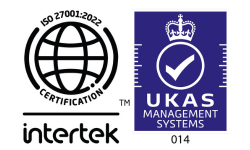What is IR35?
IR35, also known as the “off-payroll working rules,” is a part of UK tax legislation introduced by HM Revenue and Customs (HMRC). IR35’s purpose is to identify and tackle tax avoidance by individuals who work through an intermediary, such as a limited company, but who would be classified as employees if they were contracted directly. Essentially, IR35 ensures that individuals who work in a manner similar to employees but operate through intermediaries pay broadly the same tax and National Insurance contributions as other employees.
How important is IR35 for businesses?
IR35 primarily affects contractors, freelancers, and the companies that engage them. Contractors operating through personal service companies (PSCs) or other intermediaries are particularly affected. Additionally, businesses across various sectors, including IT, finance, and engineering, heavily rely on contractors. Therefore, these industries often feel the most significant impact of IR35 regulations.
For many businesses, compliance with IR35 regulations is essential to avoid penalties, including fines and backdated tax payments. Non-compliance can lead to significant financial liabilities, reputational damage, and legal consequences. Get in touch with a payroll provider today and find out more how we can help.
The history of IR35
IR35 was introduced in 2000 by the UK government to address tax avoidance by individuals providing services through intermediaries. It followed concerns that some workers were benefiting from tax advantages by operating as contractors rather than employees. The legislation aimed to ensure fair taxation for individuals performing similar roles under different employment structures. Since its inception, IR35 has undergone several revisions and updates to improve its effectiveness and address evolving tax avoidance schemes.
2017 – 2021
The off-payroll reforms (IR35) rolled out for the public sector officially in 2017. This update changed the responsibility of determining status with clients in the public sector, rather than the worker as it had been since 2000. These changes were later introduced in the private sector in 2021 with an alternative exception:
End clients who qualify for small business exemption (defined by s382 of the Companies Act 2006)
Workers based wholly overseas would be excluded, meaning contractors retain responsibility.
The off-payroll rules introduced the role of the ‘fee-payer’ throughout 2021 (Businesses that sit above the contractors (limited) companies and directly pay workers). This can be the end client if it’s a direct engagement for example, a recruitment or construction agency who sits directly above the contractor’s limited company in the supply chain. This means that the fee-payer is responsible for making sure relevant taxes are deducted from the worker’s pay. This includes tax, NICs, and the apprenticeship levy.
What were the changes in 2022 – 2023
In 2022 the government announced that the off-payroll working rules would be repealed from 6th April 2023. Meaning the worker was responsible for determining employment status for tax purposes again in all instances. However, this never ended up rolling out and was reversed less than a month later.
On 27 April 2023, The UK Government announced that it was seeking a solution to the IR35 double taxation problem, which occurred when HMRC successfully overturned an ‘outside IR35’ determination. This is known as the ‘offset-issue’. It subsequently launched a two-month consultation, with the formal response expected to be published before the end of 2023. Since the update there were no further changes made throughout 2023.
Current IR35 regulations
There has been no current update as of 2024 to the IR35. There has been chatter with potential adjustments to enforcement mechanisms and compliance requirements. These regulations may introduce stricter penalties for non-compliance or enhanced measures to identify and deter tax avoidance. Additionally, HMRC may provide updated guidance to help businesses and contractors navigate the complexities of IR35 more effectively. It’s essential for businesses and contractors to stay informed about these changes and ensure compliance with the latest IR35 regulations to mitigate risks and maintain financial integrity. If you have any concerns or questions please get in touch with a payroll provider online.
HMRC Issues with IR35 Implementation
In 2021 HMRC met with the Public Accounts Committee and noted that many companies are failing to implement IR35 rules correctly, causing more than £260 million to be owed or due to be paid to HMRC. There is an issue of employers not understanding the rules and not being able to administer the rules correctly despite months of training.
Another complicated factor in the IR35 implementation is that contractors serving one company would typically fall into the “off-payroll” rules, but are hiring others to help with the work. This is called “substituting” which makes it difficult for companies to treat the contractor as an “off-payroll” worker because there is more than one person working on the job. This also leads to companies selecting contractors who use substitutions, because they can avoid paying tax and national insurance due to this loophole.
As HMRC struggles to collect money owed based on the new IR35 rules, British taxpayers are left with the burden of suffering.
As companies continue to mishandle IR35 calculations and payments, HMRC is losing over £400 million per year in tax revenue. Large organisations are finding it difficult to understand who qualifies as an “off-payroll” worker and then manage the tax and insurance consequences.
If you have contractors who are considered “off-payroll”, we can help with compliance-related questions. Our cloud-based payroll software with customised reporting and direct filing with HMRC helps your team stay ahead of IR35 requirements and payroll deadlines so you ensure compliance. Talk to our team today and simplify your employee payroll – click here to get started
IR35 Changes Impacting Contractors across all Industries
Updates to the IR35 regulations will greatly impact contractors that manage IT for the banking, pharmaceutical, and utilities industries. Many private sector companies announced plans to phase out contract workers, because the companies do not want to manage the burden of tax liability or determinations for their contractor staff.
HMRC stated that the new tax legislation will force companies and contractors to pay their “fair share” of taxes, but the real burden lies with contractors employed with an intermediary that may struggle to find new work. Companies hire a large number of contract workers to manage their IT, but with those contractors leaving or being forced to change their employment status, companies are putting their IT operations at risk.
Another factor in the debate of the new IR35 change is the amount of tax regulation raised. HMRC stated that the legislation will provide £3 billion in new tax revenue, but companies and contractors are skeptical. HMRC claims that up to 30% of contract workers are misclassified as self-employed and should be paying the same tax as a company employee, but the burden that is being placed on contract workers is forcing many to leave their positions and possibly seek work outside of the UK.
IR35 Changes to Private Sector
HMRC made changes to the public sector off payroll rules last year, and since then has raised more than £550 million in income tax and National Insurance over the course of the year. They are now proposing the same changes to the private sector for medium and large companies, so tax and insurance calculations will now have to change for contractors and individuals providing services using a personal service company.
Many agencies and associations have spoken out against this new reform, arguing that this new legislation will negatively affect organisations that use contractors for highly skilled work in IT and other industries. HMRC does not appear to be changing course or making adjustments despite the negative feedback to the proposed changes.
Payroll teams need to stay ahead of the changes to ensure compliance with new HMRC regulations. If your payroll solution cannot support the compliance for new regulations, your company could be at risk for fines and penalties. If you are concerned about how new IR35 rules will affect your team, talk to us – we can help identify potential payroll challenges with the new changes and give you solutions to improve your process. Click here to learn more
Ongoing IR35 Challenges
IR35 is continuing to cause concerns for employers and contractors. The government will not align tax status and employment rights. This means that contractors working within the IR35 rules will work as “zero-rights” employees. They are paying tax as employees, but receive no holiday pay, sick leave, or paid maternity leave.
Zero-rights employment has been an issue since the legislation was introduced in 2000. When IR35 was changed in 2017 and 2021, the situation for contractors was made worse. Many companies did not want to engage contractors due to the new regulations, which shifted the responsibility from the contractor to the business paying the worker. Many companies insisted contractors use an umbrella company or the alternative was to have their contracts terminated.
Contractors are now facing situations where working inside of IR35 means paying more than 30% out of pocket with none of the benefits and rights of an employee at the same company. The latest response from the government continues to place the burden on contractors and could cause a shortage of skilled workers at a time when there is high demand for talent. These workers will not want to shoulder the expense without any benefits.
Understand IR35 better with by outsourcing payroll
If you are considering moving contractors to employees or have questions about how IR35 is impacting your business, talk to our team. We have integrated, cloud-based payroll and HR admin solutions to seamlessly manage employees on one platform.
Do you have workers hired through a personal service company or agency? HMRC has tools to determine employment status. Click here to use the HMRC tool
Once you’ve reviewed the employment status of your contractors, discuss any changes with your team and identify how payments will be made going forward. Create new policies for hiring contractors in the future so payments are in compliance with IR35 regulations.














